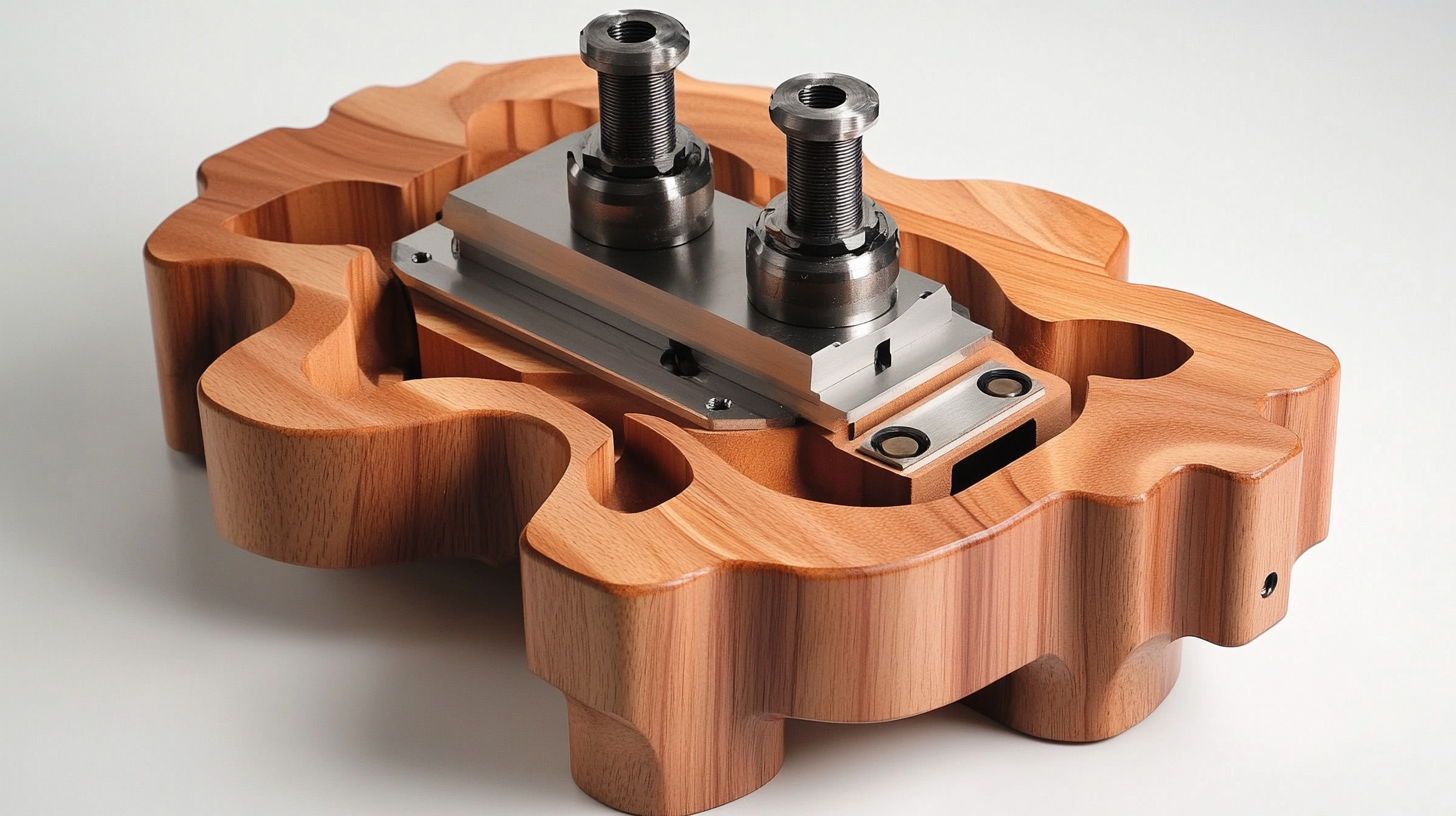In the ever-evolving landscape of woodworking and carpentry, the tools you choose can greatly influence the quality of your work. Among these tools, router bits remain crucial for precision and efficiency. According to a report by the International Woodworking Machinery & Furniture Supply Fair, the global woodworking machinery market is expected to reach $10 billion by 2025, with a significant portion of that growth attributed to advancements in router technology. As businesses aim to maintain competitive edges, selecting the Best Router Bits has become a pivotal decision that can impact production capabilities and craftsmanship.
Investing in high-quality router bits is not just about enhancing your tools but also about ensuring consistent results and reducing the likelihood of errors and waste. A study by the Woodworking Network highlights that companies using optimized tool sets have seen efficiency improvements of up to 30%. As we delve into the ten secrets of choosing the Best Router Bits for your business in 2023, it becomes apparent that informed decisions based on market trends, material compatibility, and application purpose are essential for achieving excellence in woodworking.

When it comes to woodworking, choosing the right router bits is essential for achieving precision and quality in your projects. Router bits come in various types, each serving specific functions that can elevate your woodworking game. Understanding the different types of router bits and their uses allows you to select the best one for your business needs, whether you are in a professional setting or a DIY enthusiast. For instance, straight bits are often used for basic cutting and shaping tasks, while spiral bits can create smoother cuts and are ideal for intricate designs. Flush-trim bits, essential for trimming laminate or other surfaces, help ensure a seamless finish. If you're looking to create decorative edges, consider round-over or chamfer bits, which add flair to any project. With the right assortment of bits, you can tackle a variety of joinery techniques, making them indispensable tools in your toolkit. Recent evaluations of router bits highlight the importance of quality and versatility. Comprehensive sets provide woodworkers with a range of profiles, ensuring they can achieve precise cuts and joinery. As you explore the market in 2023, look for sets that offer the most commonly used bit profiles, as these will save you time and increase your productivity, allowing you to focus on the craftsmanship that truly matters.

When selecting router bits for your business in 2023, there are several key factors that play a crucial role in ensuring you make the best choice. As the global routers, switchers, and master controls market is projected to reach USD 58.25 billion by 2030, understanding the nuances of the market can provide invaluable insights. The selection process should take into account the material type, size, and the specific application you need the router bits for, which can significantly impact performance and durability.
In recent developments, the introduction and testing of 5G routers are reshaping connectivity for businesses and homes alike. These advanced routers promise not only higher speeds but also enhanced reliability, which is essential for demanding applications. As you consider your router bit options, integrating tools compatible with the latest technology would be advantageous, especially as more businesses transition to fiber and 5G integrated systems, like AT&T's recent launch of their innovative gateway designed for lightning-fast connectivity.
Moreover, looking into leading manufacturers such as TP-LINK, Cisco, and Netgear is another important aspect. These companies are key players in the market and offer a variety of products that cater to different business needs. Staying informed about the latest trends and innovations in the router and networking equipment market will help ensure that your choice of router bits aligns with the shifting technological landscape, ultimately enhancing the efficiency and effectiveness of your operations.

Choosing the right router bits is crucial for any business aiming to maintain efficiency and high-quality work in 2023. When evaluating quality and durability in router bits, it’s essential to consider materials and construction. According to a survey conducted by the Woodworking Industry Association, 65% of woodworkers reported that the longevity of their router bits significantly impacts their operational costs. High-speed steel (HSS) and carbide-tipped bits are among the most durable options available, with carbide-tipped bits lasting up to six times longer than standard HSS bits.
In addition to material, the manufacturing process plays a vital role in the quality of router bits. Bits that are precision-ground, as opposed to those that are simply stamped or molded, tend to provide better performance and durability. A report by Tooling & Manufacturing Association indicates that precision-ground bits offer sharper cutting edges and reduce the likelihood of chipping, which can lead to costly downtime. Businesses can enhance their productivity by investing in high-quality bits that minimize replacement frequency and improve overall performance.
Finally, user feedback is invaluable when selecting router bits. According to a recent review analysis, businesses that regularly consult trusted testimonials experienced a 40% reduction in item returns. Taking the time to research and choose bits that have proven successful in similar applications can minimize risks and ensure you select tools that meet your specific needs. In an industry where precision and efficiency are paramount, evaluating the quality and durability of router bits is an investment that pays off in the long run.

When selecting router bits for your business, one critical aspect to consider is the compatibility of these bits with your existing machinery. Router bits come in various shapes, sizes, and materials, and ensuring that they align with your equipment's specifications can significantly impact productivity and quality. The right bit can enhance machine performance, allowing for smoother cuts and increased efficiency in operations.
Industry data indicates that using the incorrect router bit can lead to decreased output and increased wear on machinery. For instance, a report from the Woodworking Machinery Association shows that 20% of machinery downtime is attributable to incompatible tooling. Therefore, businesses must choose bits that not only fit their routers but are also designed to optimize the specific materials they work with. This is particularly crucial in industries where precise cutting and joining are essential, such as cabinetry and custom woodworking.
Moreover, training employees on the importance of bit compatibility can enhance operational safety and machine lifespan. As seen in various tooling and machinery integration seminars, understanding the nuances of router bits and their interactions with equipment can lead to better decision-making and reduced risks. Investing in the right training aligns with efficient practices and ensures that your team can maximize the capabilities of your machinery, ultimately leading to improved business outcomes.
When it comes to purchasing router bits in bulk, adopting cost-effective strategies is essential for businesses aiming to maximize their operational efficiency. According to a report by the Markets and Markets research group, the global woodworking tools market is projected to reach $10.45 billion by 2027, underscoring the increasing demand for quality tooling in various industries, including furniture manufacturing and cabinetry. This growth indicates that businesses can benefit substantially from bulk purchasing, ultimately leading to reduced costs per unit and better return on investment.
One effective strategy for purchasing router bits in bulk is to establish relationships with reliable manufacturers and suppliers. Industry data suggests that businesses that engage directly with manufacturers can receive discounts of up to 30% compared to standard retail prices. By negotiating bulk purchase agreements or taking advantage of promotional offers, companies can significantly lower their procurement costs, allowing more resources to be allocated for innovation and production improvements.
Additionally, maintaining an inventory of high-quality router bits enables businesses to capitalize on economies of scale. Research from the Woodworking Network indicates that companies maintaining a larger inventory can reduce lead times and improve workflow efficiency. This stockpiling approach not only ensures that enterprises are well-equipped to meet production demands but also positions them to leverage cost-saving opportunities through bulk procurement, ultimately enhancing their competitive advantage in the woodworking sector.